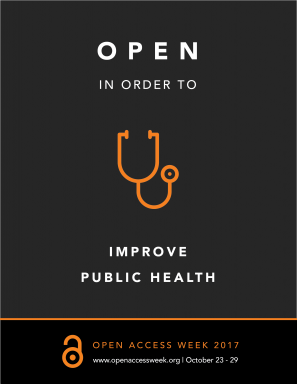Helping People Help Themselves: Better Scientific Communication via Open Access

As we wrap up our celebration of Open Access Week, this is a great time to think about what Open Access can mean to researchers, to scholars, and to our local, national, and international communities. Librarians promote publication in Open Access journals to enable collaboration with like-minded researchers and to raise research visibility, but there are many reasons to wade into the Open Access waters. One of the most compelling is to increase knowledge of science, research, and medicine outside the Ivory Tower.
Think about how easy it is access the latest research in highly regarded journals from the comfort of the Library, or from home (if you go through the proxy server) as a student, faculty, or staff member of Tufts University. But how many times have you tried to access a scientific study from off-campus and run into a paywall? How many times has a newspaper or blog made a claim about a health benefit or some groundbreaking research, only to link out to a journal you can’t access? Think about everyone NOT studying at or employed by a college or university…where do they get their scientific information?
Turns out, the Pew Research Center recently published a study about how Americans consume science news, and they report that 66% of Americans “actively seek out and directly consume” news about science, and the overwhelmingly popular source of that information is outlets like newspapers and television news programming. However, many of these consumers feel that news media does a poor job covering scientific topics (41%) and that some of those reasons include: hasty reporting of findings that may not hold up, oversimplification, overreporting of conflicting viewpoints, and coverage of findings that are not important.
If you work in or study health sciences, you watch this play out on the evening news every day, usually regarding whether or not red wine will make you live forever, if chocolate replaces working out, if coffee will kill you, or if you actually need to floss your teeth (Note: please keep flossing). But who do Americans blame for this? Most participants in the Pew Study blamed the news media, but nearly a quarter (24%) blamed poor scientific reporting on the “way science researchers publish.”
Well well well. We might not be able to change every newscast and every newspaper, but a major way to improve scientific communication is to publish research that EVERYONE can read. For free. Open Access! Think of all the questions that can be answered when patients and health care providers outside of colleges and universities can access quality research free of charge. Think of the advances when researchers can find, use, and reinterpret data without copyright restrictions or paywalls.
Check out the Scholarly Publishing and Access Resources Coalition’s reasons to support open access to aid scientific communication here: https://sparcopen.org/open-access/.